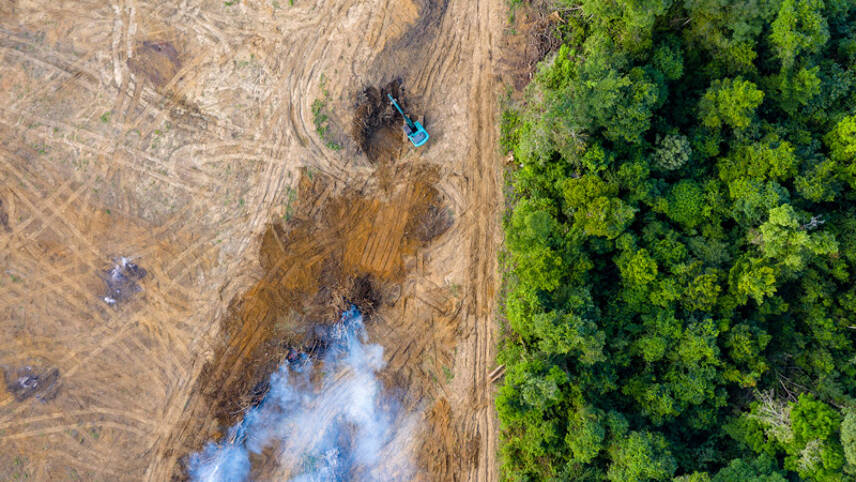Register for free and continue reading
Join our growing army of changemakers and get unlimited access to our premium content

The Nature of Business report includes the findings of a survey of 345 UK businesses and has been published today (1 December).
The research aimed to explore businesses’ levels of understanding and action on biodiversity and nature loss. It found the vast majority of business leaders – executive decision-makers – believe firms do have an important role to play in addressing their impact on nature.
Only 14% said their businesses had no role in supporting nature beyond their legal and regulatory requirements.
Meanwhile, 79% of business leaders saw the impact of greenhouse gas emissions on biodiversity and nature as relevant to their company.
A clear majority indicated that their firm’s activities could also impact biodiversity through pollution (72%), land-use change (63%) and resource extraction (61%).
Plans to address biodiversity impact were reported to be in place among 62% of firms. This was more likely to be the case in big firms (83%) than SMEs (53%). Worryingly, across businesses of all sizes, only 15% of business leaders said plans were already being implemented.
In comparison, 74% of business leaders said their firms had net-zero carbon emissions plans in place, with 23% saying these plans were already underway.
A majority of business leaders (51%) believed achieving net-zero would play a large role in reversing or slowing biodiversity and nature loss. Only 10%, however, believed achieving net-zero would be sufficient action for reversing or slowing down biodiversity and nature loss.
In the boardroom, 71% of business leaders reported that biodiversity and nature plans were discussed. However, relatively few (18%) said this made a significant impact on investment decisions.
Spotlight on opportunities for action
The report looks to help businesses and other stakeholders identify new solutions to environmental problems and enable new business opportunities to be found.
Half of business leaders (52%) saw reputational benefits for their firms as a significant opportunity arising from action to support biodiversity, as well as resource efficiency (40%) and the potential for new products or services (35%) as other important business opportunities.
CBI chief economist Rain Newton-Smith said: “Biodiversity is already firmly on the agenda in boardrooms across the country and will only attract greater attention in the years ahead.
“Firms are increasingly aware of the importance of protecting nature – both to achieve net zero goals and preserve and restore the variety of animal and plant species across our planet.
“While COP15 (the UN’s biodiversity summit, with the latest meetings beginning in Montreal next week) should help spur further business engagement on these issues, there is still a gap to be bridged between boardroom awareness and tangible action.
“That’s largely due to the complexities of firms’ interactions with nature, both locally and globally, through their supply chains.
“As ever, more companies seek to understand their impact and dependency on nature, as well as learning how to better manage these risks, there will be huge opportunities for UK business to develop new products and services. This is especially true for consulting, technical services, engineering and resource management, or through developing new processes in agriculture and the circular economy.”
Professor Lisa Roberts – vice chancellor of the University of Exeter – added: “We have pledged to commit our resources – intellectual, physical and human – to increase skills and do what it takes to make the UK an international hub for net-zero, clean growth and nature recovery.
“This report will inform the University of Exeter’s work to find solutions that will support businesses to reduce their own impact on nature. Along with our RENEW biodiversity renewal project, it is a crucial step in acknowledging the leading role businesses can play in biodiversity and nature restoration.”


Please login or Register to leave a comment.